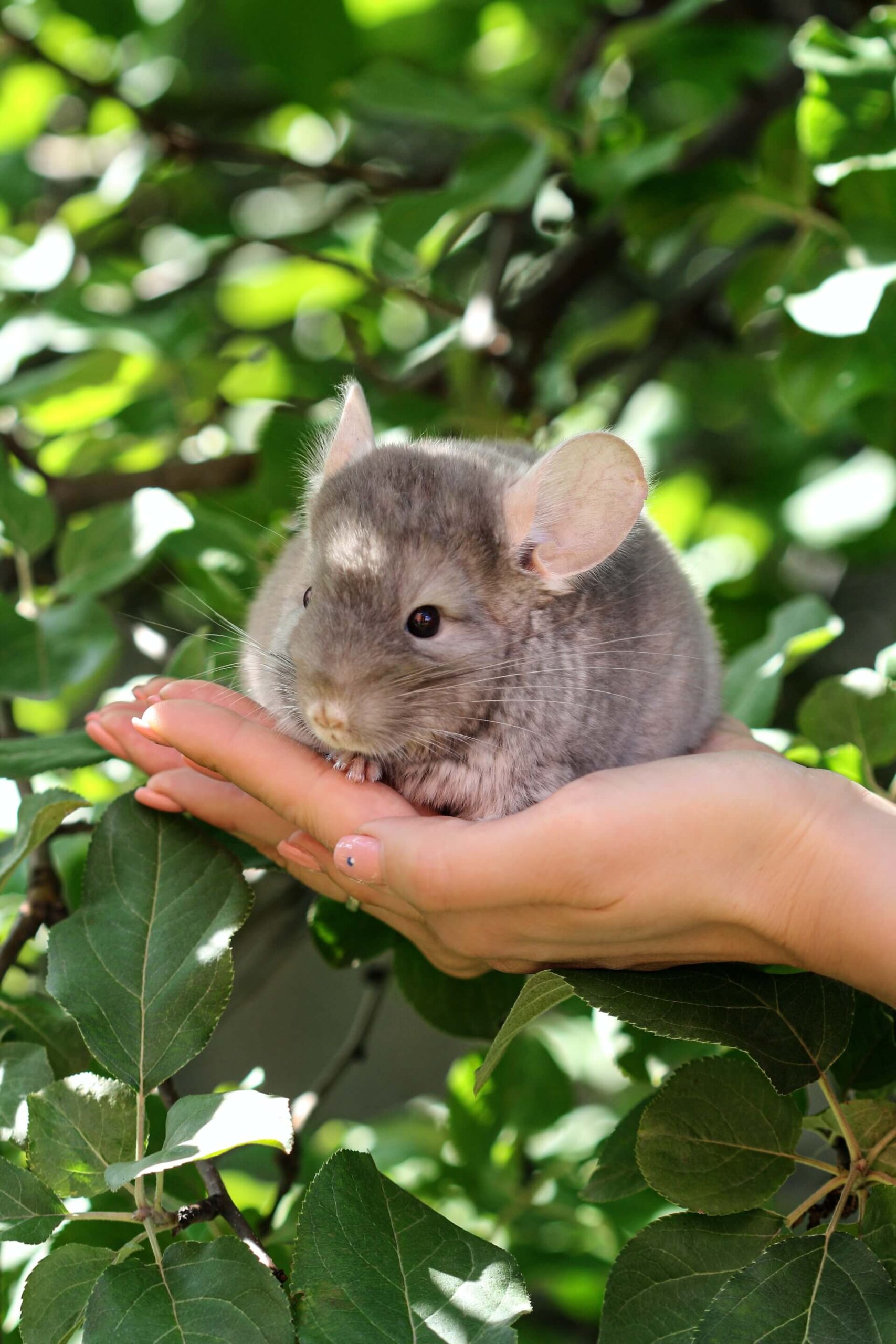Chinchillas are unique and adorable small rodents known for their incredibly soft fur and lively personalities. To keep these furry friends healthy and happy, it’s crucial to understand their dietary requirements. In this comprehensive guide, we’ll explore the specific dietary needs of chinchillas, what to feed them, and what foods to avoid to ensure their well-being.
Understanding the Dietary Needs of Chinchillas
1. The Hay Foundation
The foundation of a chinchilla’s diet is high-quality grass hay. Timothy hay is an excellent choice and should be provided to your chinchilla at all times. Hay is not only a source of essential fiber but also aids in maintaining healthy teeth, as chinchillas have continuously growing teeth that require regular wear.
2. Pelleted Chinchilla Food
In addition to hay, pelleted chinchilla food can be part of their diet. Look for high-quality, specifically formulated chinchilla pellets. Avoid mixed or seed-based diets, as these often contain high-fat and sugary ingredients that can lead to obesity and other health issues.
3. Limited Fresh Vegetables and Fruits
Chinchillas can enjoy small portions of fresh vegetables and fruits as occasional treats. Some safe options include:
- Leafy greens (in moderation): Such as spinach, kale, and romaine lettuce.
- Herbs: Like cilantro, parsley, and basil.
- Fruits (sparingly): Such as apple slices, grapes, or a small piece of banana. These should be occasional treats due to their high sugar content.
Always wash fruits and vegetables thoroughly, remove any seeds, and offer them in small, manageable portions to prevent digestive upset.
4. Fresh Water
Fresh, clean water should always be available to your chinchilla. Use a sipper bottle to provide water, as it helps keep the cage clean and prevents water contamination.
5. Avoid These Foods
Certain foods are toxic or harmful to chinchillas and should be strictly avoided:
- High-sugar and high-fat foods: Chinchillas are prone to obesity, diabetes, and other health issues if fed sugary or fatty foods. This includes most fruits, nuts, and seeds.
- Dairy products: Chinchillas are lactose intolerant and should not consume milk or dairy-based treats.
- Human snacks: Chips, cookies, and other processed human snacks are not suitable for chinchillas and should never be offered.
- Onion and garlic: These vegetables can be toxic to chinchillas and should be avoided.
- Chocolate: Chocolate contains theobromine, which is toxic to many animals, including chinchillas.
6. Gradual Diet Changes
If you need to change your chinchilla’s diet, do so gradually over a week or more. Sudden diet changes can upset their sensitive digestive systems.
7. Dental Health
Chinchillas have continuously growing teeth that need regular wear to prevent overgrowth. Providing hay and safe chew toys can help keep their teeth healthy.
8. Monitor Food Intake
Keep an eye on your chinchilla’s food intake. If you notice a sudden decrease in appetite, changes in droppings, or other unusual behaviors, consult a veterinarian promptly. These could be signs of a health issue or dietary problem.
Conclusion: A Balanced Diet for a Happy Chinchilla

Maintaining a balanced and appropriate diet is crucial for the well-being of your chinchilla. Providing a constant supply of high-quality hay, supplemented with chinchilla pellets, and occasional fresh vegetables and fruits in moderation will help keep your furry friend healthy and happy. Remember to always avoid harmful foods and provide fresh water, clean bedding, and a safe environment to ensure your chinchilla’s long and joyful life as your cherished companion.


